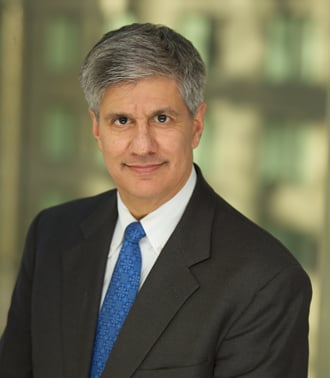Eighth Circuit Puts the Teeth Back in the AKS’s Causation Requirement, Creating Yet Another FCA Circuit Split
What type of link is needed between a claim for government money and an alleged kickback for a defendant to be liable under the FCA claim? The answer seems easy—Congress has said that a claim for an item or service “resulting from” a violation of the Anti-Kickback Act (AKS) is false or fraudulent under the FCA. While this statutory language indicates an actual causation standard, courts have shied away from requiring relators and the government to establish actual causation. Instead, many have simply required a showing that claims were submitted some time after the alleged kickback,1 seemingly eliminating any causation requirement, while others have crafted a standard “something in between” actual causation and no causation at all.2
But last week the Eighth Circuit held that actual or but-for causation is required based on the plain language of Congress—the first circuit court to so hold as far as we are aware. United States ex rel. Cairns v. D.S. Med., L.L.C., __ F.4th ___, 2022 WL 2930946 (8th Cir. July 26, 2022). In Cairns, the defendant, a surgeon, challenged a $5.5 million jury verdict for the government in an intervened qui tam alleging kickbacks from a device manufacturer and a distributor, arguing that the trial court did not instruct the jury on causation. The Eighth Circuit agreed, holding that the “resulting from” language of the 2010 amendment to the AKS required an instruction on causation.
The Eighth Circuit further explained that the instruction must be actual or but-for causation, based on a Supreme Court case interpreting “resulting from” in a different statute and the ordinary dictionary meaning of those words. In so holding, the Cairns Court rejected the government’s argument that it need only show that claims are “tainted” by kickbacks or that kickbacks “may” have been a contributing factor, stating that “these alternative standards, however, are hardly causation at all.” Rather, an FCA plaintiff must “prove that a defendant would not have included particular ‘items and services’ [in a claim] but for the illegal kickbacks.”
Notably, the Eighth Circuit recognized its approach differed from that of United States ex rel. Greenfield v. Medco Health Sols., Inc., 880 F.3d 89 (3d Cir. 2018). In Greenfield, the Third Circuit unequivocally rejected a but-for causation standard, reasoning that the legislative history and statutory purpose of the 2010 Anti-Kickback Statute (AKS) amendment was not intended to narrow viable FCA claims. Instead, that court held that causation should be “something in between” and required the plaintiff in that case to have proof of at least one claim for a patient illegally referred to defendant because of a kickback. Unsurprisingly, DOJ has endorsed this theory in other FCA litigation, including in cases outside of the Third Circuit. The Eighth Circuit in Cairns disagreed because the plain language of the 2010 AKS amendment is “unambiguously causal.”
The Cairns case should have a major impact on kickback cases brought under the FCA if it is widely followed, particularly in healthcare fraud where the government typically alleges hundreds if not thousands of false claims based on a “taint” theory. The Eighth Circuit’s decision will also impact other kickback cases given the rigorous causation standard that it imposes. And, significantly, the different approach to that of the Third Circuit in Greenfield could set up the issue for future Supreme Court review.
© Arnold & Porter Kaye Scholer LLP 2022 All Rights Reserved. This blog post is intended to be a general summary of the law and does not constitute legal advice. You should consult with counsel to determine applicable legal requirements in a specific fact situation.

